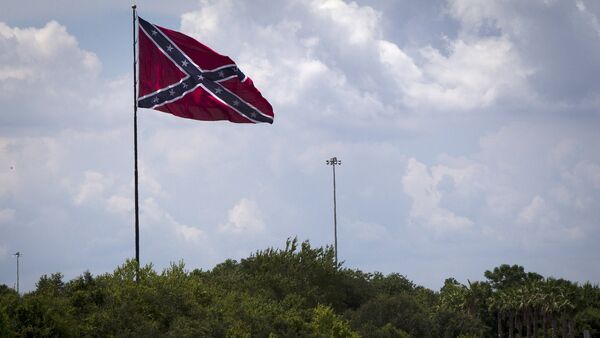"If the, and I use this term extremely loosely, 'leadership' of Louisiana wishes to, in a Nazi-ish fashion, burn books or destroy historical monuments of OUR HISTORY, they should be LYNCHED! Let it be known, I will do all in my power to prevent this from happening in our State," wrote the representative, Karl Oliver.
Oliver referred to the removal of the last of New Orleans" monuments to the Confederacy. Four of them have been taken down in 2017, the last of them being a 20-foot statue of Confederate General Robert E. Lee. New Orleans, a city with a predominantly black population and a city council controlled by Democrats, voted to remove the monuments.
"The destruction of these monuments, erected in the loving memory of our family and fellow Southern Americans, is both heinous and horrific," added Oliver.
The Facebook post received more than 1500 comments before it was taken down. Numerous other state officials came out against Oliver, including fellow Republican Governor Phil Bryant. "Rep. Oliver's language is unacceptable and has no place in civil discourse," he wrote.
"[The comments] do not reflect the views of the Republican party, the leadership of the House of Representatives or the House as a whole," added Republican Speaker of the House Philip Gunn. "Using the word 'lynched' is inappropriate and offensive. We call on Rep. Oliver to apologize."
Fellow State Representative Christopher Bell, an African-American Democrat, wrote that he was "angered beyond words by the inflammatory remarks made by the Representative from District 46 [Oliver]. His constant and consistent disrespect for those who are offended by the images of hate is unacceptable! I will fight with vigor and tenacity to ensure not only our current state flag is removed along with those images that glorify hate."
"I, first and foremost, wish to extend this apology for any embarrassment I have caused to both my colleagues and fellow Mississippians. In an effort to express my passion for preserving all historical monuments, I acknowledge the word 'lynched' was wrong," wrote Oliver in an official apology.
"I am very sorry. It is in no way, ever, an appropriate term. I deeply regret that I chose this word, and I do not condone the actions I referenced, nor do I believe them in my heart. I freely admit my choice of words was horribly wrong, and I humbly ask your forgiveness."




